Article Updated July 17, 2024 — After this article was posted, Miguel Rosario reported, “Duck is still in tests. Now we will install a 912 ULS 80-horsepower engine, as requested by future customers.” He continued, “Molds are under construction for production, which we hope to start in three months” (approximately October 1, 2024). He finished, “I will keep you updated on all developments regarding Duck.” —DJ
You probably know Seamax. This longtime, performance-oriented LSA seaplane was one of the first to make a splash in the U.S. light aircraft market way back in December, 2007.
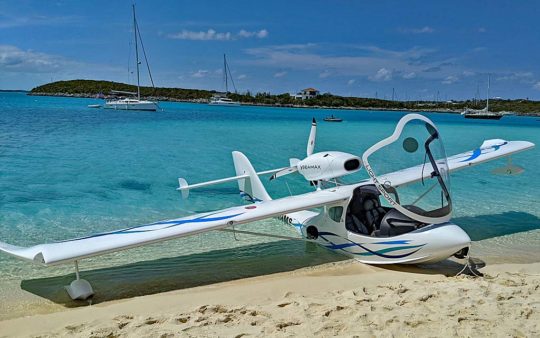
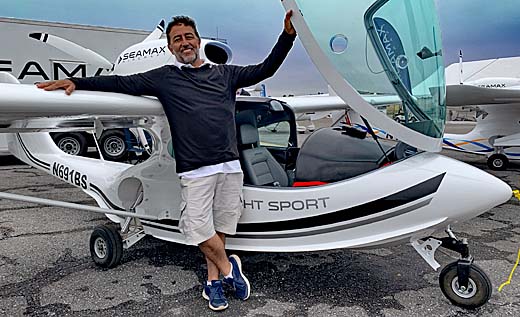
Miguel Rosario is an enthusiastic and talented designer.
Nonetheless, Seamax M-22 designer Miguel Rosario remains active. You can’t keep a good man down but apparently you can keep him on the water.
Welcome Duck!
Seamax and Duck share a love of water but otherwise they could hardly be more different.
Seamax (several articles here) was an early entry in the LSA sweepstakes. Despite earning its FAA acceptance only three years after the SP/LSA regulation was released, Seamax clocked in as #63 to receive its Special Airworthiness Certificate. New Light-Sport models arrived regularly in those beginning years, sometimes four or more new entries in a single month.
Many of those models — 158 show on our SLSA List — have gone quiet, perhaps never finding sufficient market to continue in the crowded and highly competitive U.S. market. Some off-shore designs have steady markets at home but found America challenging.
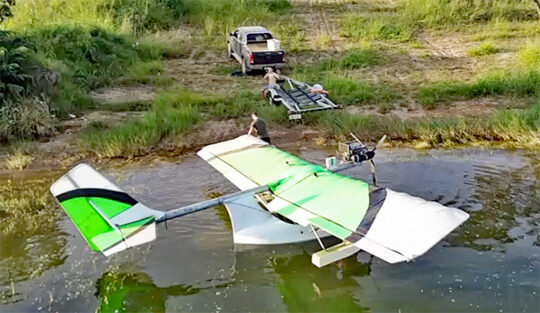
Welcome Duck!
Since Seamax gained acceptance as a Special LSA, lots has happened. Only a year after its approval, we experienced the global financial crises of 2008 and more recently Covid and regional conflicts. During this turbulent period, currencies around the world continued to lose purchasing power such that a modern new LSA today is reaching toward $200,000 while some of the best-equipped, highest-performing models have shot past $300,000.
In these gusty conditions, affordable airplane builders have been hit hard by rising input costs and seaplanes even more so. Two top seaplanes — Searey and Seamax — are presently off the market. Icon just survived an expensive bankruptcy. Vickers Wave and Finland’s ATOL continue to progress (article) but are not actively being sold yet. We’re still waiting on other promising designs covered on this website.
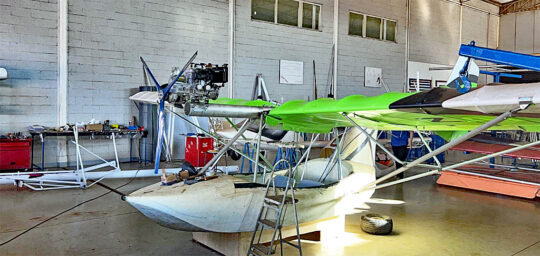
Fabricating the hull for Duck mated to a V5 Fox Neo.
Aero Adventure stands out as one strong survivor with fairly low costs, though even those are rising as the dollar sinks and the company has established a Brazilian factory, as was recently reported.
Duck Entry
Fortunately, challenges in the LSA seaplane sector need not affect all affordable aircraft.
While Seamax design Miguel Rosario admits the business part of aircraft building is not his forte, this prolific designer is one of those types who can’t sit still while the bean counters sort out Seamax, Inc.
“I am still working in airplane design (and race cars),” Miguel recently wrote via email. “I just developed a new amphibian that should have a low cost.”
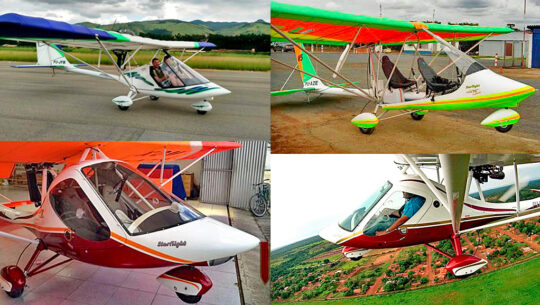
Fly Fox is the manufacturer of the Fox ultralight family consisting of V4, V5, and V6 (nearby images). Miguel noted that for the last 20 years, Fly Fox has been successfully manufacturing kit-built ultralights. “In manufacturing quality and flight characteristics, these are very good aircraft,” Miguel expressed.
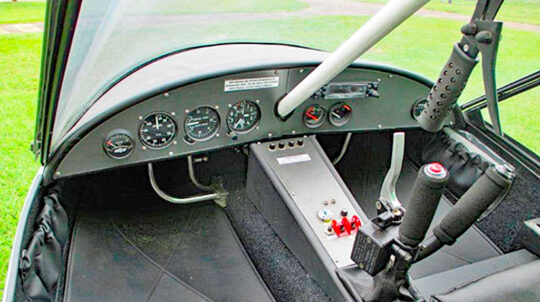
the boom on top, installing the engine in tractor position, and adding a small composite boat hull.”
“The flight test program is finished,” Miguel declared, “and Fly Fox is now preparing for production.”
Main Technical Data
supplied by Miguel Rosario
- Empty Weight — 540 pounds (245 kilograms)
- Useful Load — 485 pounds (220 kilograms)
- Wing Span — 31.7 feet (9,66 meters)
- Stall Speed — 32 mph / 28 knots
- Cruise Speed — 78 mph / 68 knots
- Engine — Rotax 582, 65 horsepower
- Propeller — Warp Drive 3-blade 68 inch
About Fly Fox
“Since the end of 2018, Fly Ultraleves (English website) created the company Fly Fox to manufacture kits for assembling Fox V-5 and Fox V-6 aircraft under license.” wrote the Brazilian company.
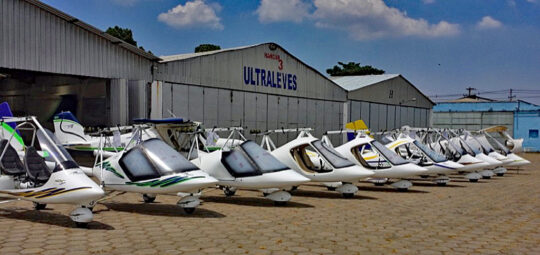
“Fox V5 Super Neo is an ultralight built side by side for the pilot who wants the “open cockpit feel.” [With] the strength and safety of the Fox line, and with its docile controls, low stall speed and configuration of an aircraft with unsurpassed flight quality, V5 Super Neo will certainly be the choice for the adventurous aviator.”
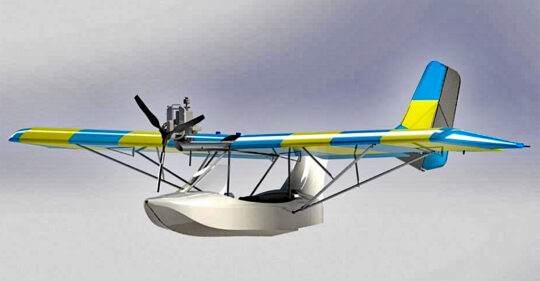
A 3D rendering of the project as it began.
“The Fox V5 Tandem Neo is an ultralight with tandem (fore and aft) seats, incorporating the latest technological solutions. The landing gear has a laminar spring system for softer landings. The simplicity of the aircraft makes it a fun machine. It has the strength and safety of the Fox line, and with its docile controls, low stall speed and configuration of an aircraft with unsurpassed flight quality, it will certainly be the choice for the aviator who likes the wind in their face.”
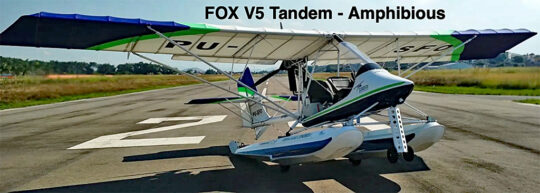
Fly Fox of Australia featured this earlier floatplane version of Tandem Neo.
Fly Fox’s V5 series use sewn dacron wings and offer “internal comfort, and a highly reinforced structure.” Various Rotax engines are recommended though builders may install the engine of their choice, said Fly Fox.
How Low Cost?
My title slide suggested Duck will be relatively inexpensive but it’s still too early to know details. As a kit based on ultralight construction, it’s reasonable to project a modest selling price. Fly Fox is not presently represented in the USA. Nonetheless, given rising LSA prices and even more costly Mosaic LSA to come in a year or so, economical choices like Duck may be worth investigating. You won’t likely get one for summer 2024 but you can dream ahead.
Interested? Contact Fly Fox directly…
This video was composed from clips sent by Miguel Rosario in June 2024. The finished Duck may look different than seen in this proof-of-concept aircraft. It is seen here making its maiden flight.


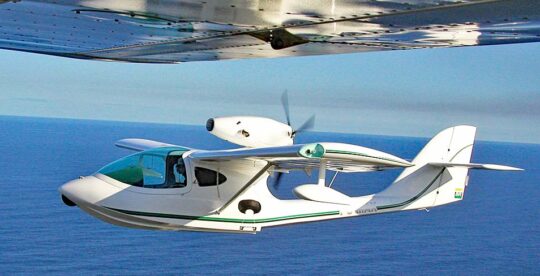
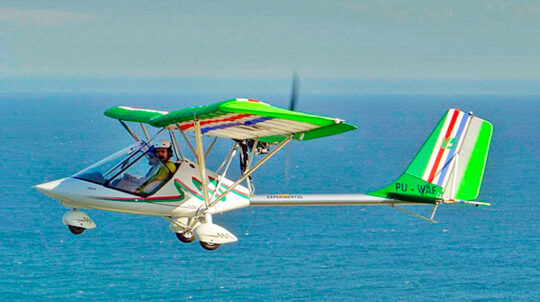

Well, well… Here we go again… The same story! They sold a bunch of airplanes, took a lot of money from customers, never delivered the airplanes (and never will), and now, suddenly, a new amphibious airplane shows up in the market, but it’s not Seamax Company, it’s Flyflox, just using the same folks, tools, jigs, etc? Come on!!!!
“It sounds like they have been scamming people for a long time. Many customers will not receive their planes. Neither will I. It seems like a fraudulent scheme: They just invest in a new project or new model, then transfer assets to a new company built with the poor customers’ money. How about some accountability? US customers, beware!”
While you are entitled to an opinion, I want to be sure you know the Fly Fox company is not associated with Seamax. A common thread is that Miguel designed the seaplane Neo variation for Fly Fox but that’s where it ends. It is my understanding that Duck will not be produced, sold, or serviced by Seamax.
I wonder if this guys will have the decency to show up at Oshkosh or Sun N Fun.
No information about this duck at this Fly Fox website thou… they have nothing to display.